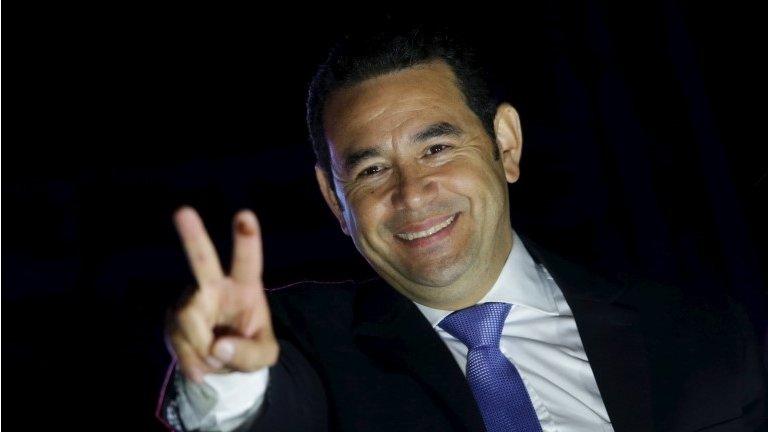Guatemala's new leader Jimmy Morales has the last laugh
- Published
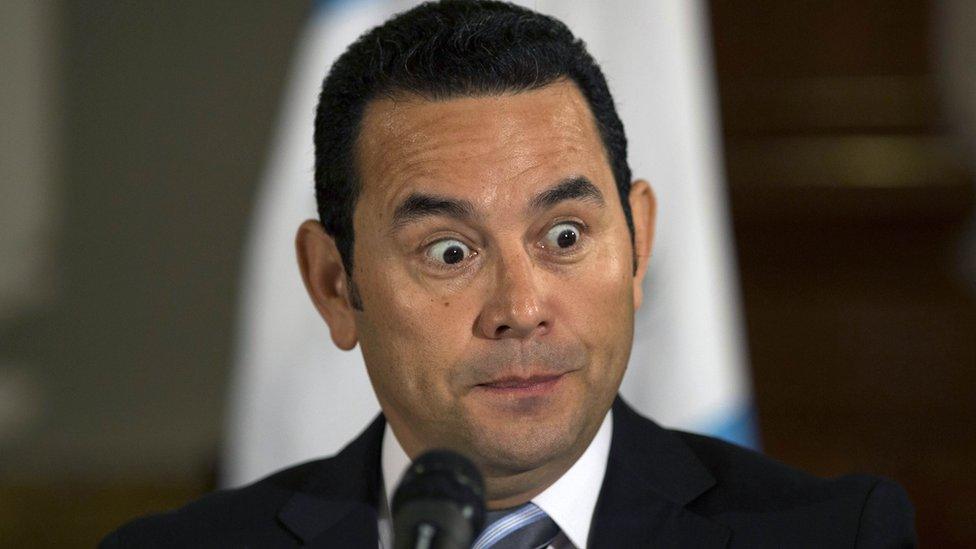
Mr Morales starred in the weekly comedy programme Moralejas for more than 15 years
Protests on the streets, corruption scandals at the highest level and the former president and his deputy awaiting trial in jail.
The past few months have been a political soap opera in Guatemala.
The revelations have, at times, been so unbelievable as to be practically laughable.
So perhaps former comedian Jimmy Morales has found the perfect job as the country's new president.
Parody v politics
Mr Morales is used to being in the limelight. He starred in the weekly comedy programme Moralejas with his brother Sammy for more than 15 years.
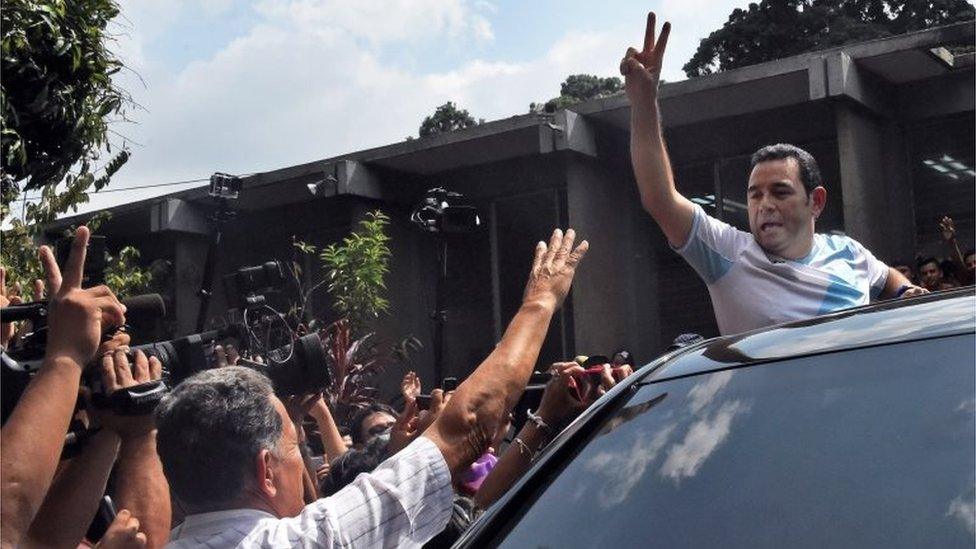
Jimmy Morales has portrayed himself as a man of the people
"Humour really opened doors for me and enabled me to convey important messages," he tells me after his election victory.
The newly elected president cites The Great Dictator, Charlie Chaplin's 1940 satirical film mocking Adolf Hitler, as his inspiration.
"There's no other film that has such strong content - and it was done with humour," he says.
But not all of Mr Morales' jokes have been successful.
One episode of Moralejas that sticks in many people's minds is when he performed in blackface, triggering accusations of racism.
Controversies aside, one thing is certain, he has far more experience in parody than politics.
Perfect timing
The launch of Mr Morales' presidential campaign could not have been better timed.
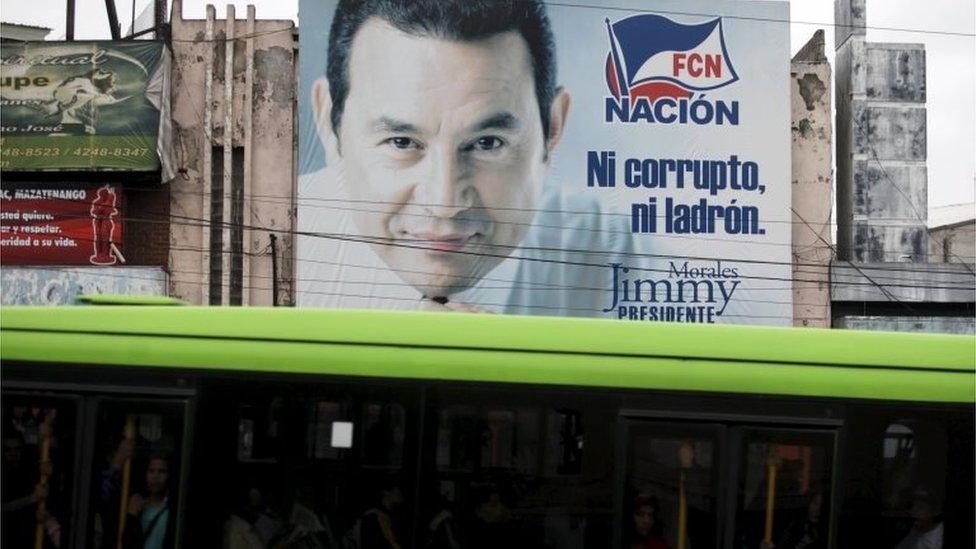
Mr Morales' campaign message was "Neither corrupt nor a thief"
He put himself forward for the top job just as demonstrators began to take to the streets in weekly mass anti-government protests in April.
The protests were a reaction to a report by a UN body accusing several high-profile Guatemalan politicians of links to a corruption ring involving the country's customs agency.
The corruption allegations reached to the highest levels.
Both the president at the time, Otto Perez Molina, and Vice-President Roxana Baldetti, were among those accused and are now in jail awaiting trial.
Mr Morales' campaign message of "Neither corrupt nor a thief" resonated with Guatemalans, the newly elected president says,
"It made the people trust us," he explains.
"Lots of people started to believe that politics was not synonymous with corruption."
'Too narrow'
But in the view of some experts, Morales' anti-corruption message is not broad enough.
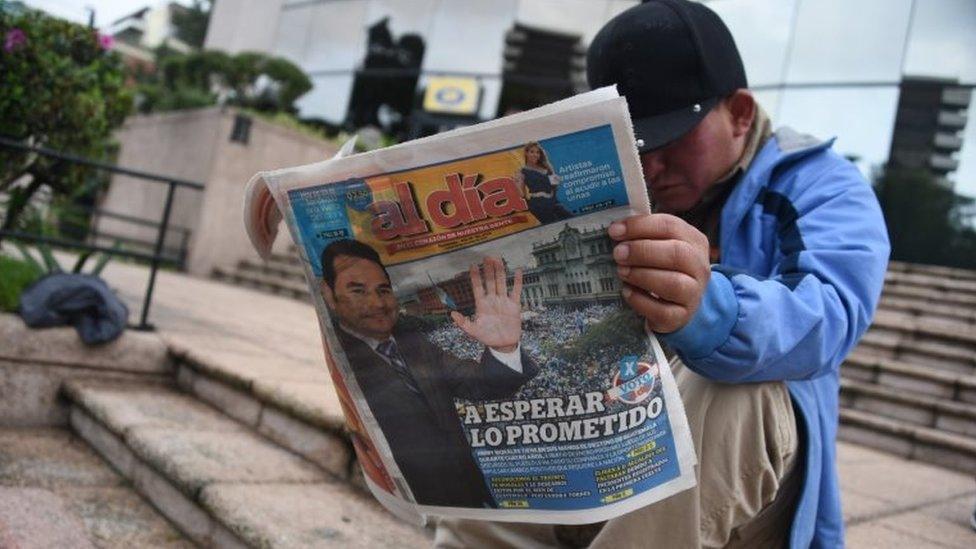
Guatemalan newspapers said it was now time to "wait for what had been promised"
"When you run on the notion and only on the notion that you are not a thief, that tells you a lot about the state of the political system," says Kevin Casas Zamora of the Inter-American Dialogue in Washington DC.
"One should expect much more than that from the leaders in a normal democracy - not just not being a thief."
Despite being seen as a political outsider, there have been concerns that his party, the National Convergence Front, has links to the military, which played a brutal role in Guatemala's civil war from 1960 to 1996.
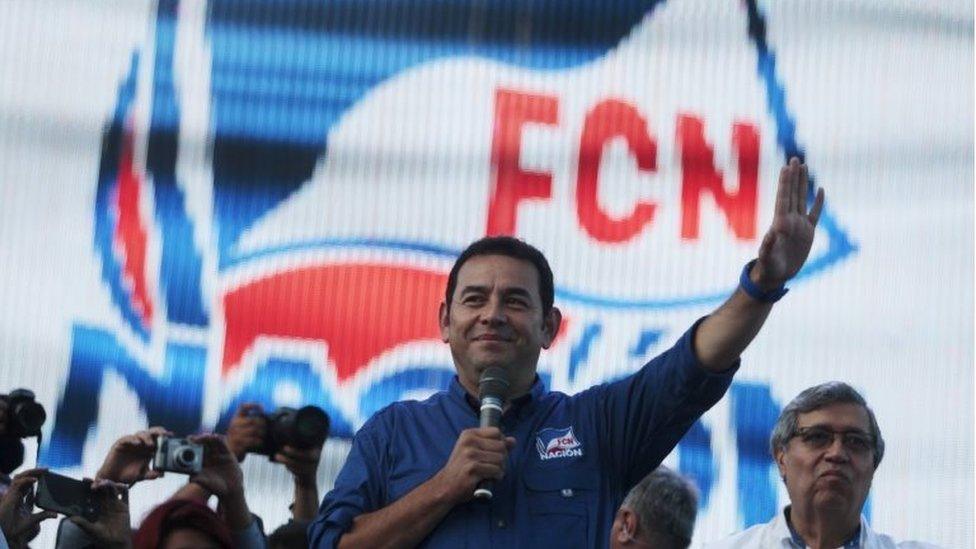
Mr Morales ran for the National Convergence Front
But many voters felt Mr Morales was their best option.
Other candidates had been linked to corruption cases and with so much anger directed at former president Perez Molina, people in Guatemala wanted to see change.
Short on detail
Perhaps the biggest criticism levelled against Mr Morales is that very little is known about his politics.
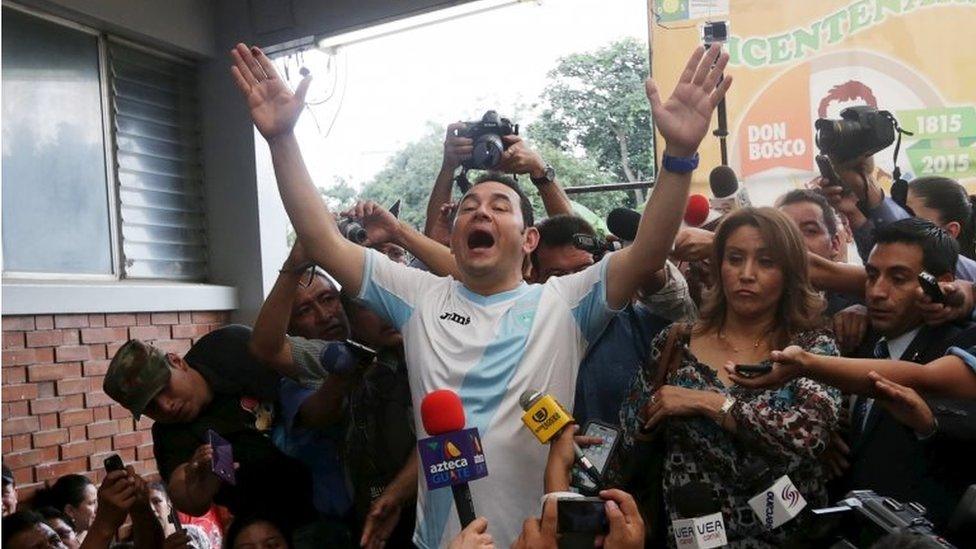
Mr Morales likes to be at the centre of attention
His campaign manifesto is just six pages long and reveals little about his ideas and plans.
Mr Morales says that he realised that he wanted to do something for his country as early as 1999, when he was studying in Spain.
Living far from home, he says, made him realise how much he loved Guatemala and how much it pained him to see what was happening to it.
But he did not enter politics until 2008.
So how does he defend himself against that criticism?
"I'd reply in the same way that Henry J Ford replied when the US Senate asked him whether he knew anything about the car industry," he says.
"He told them: 'Put a phone in front of me - I don't know everything, but I know the people to call to find out'."
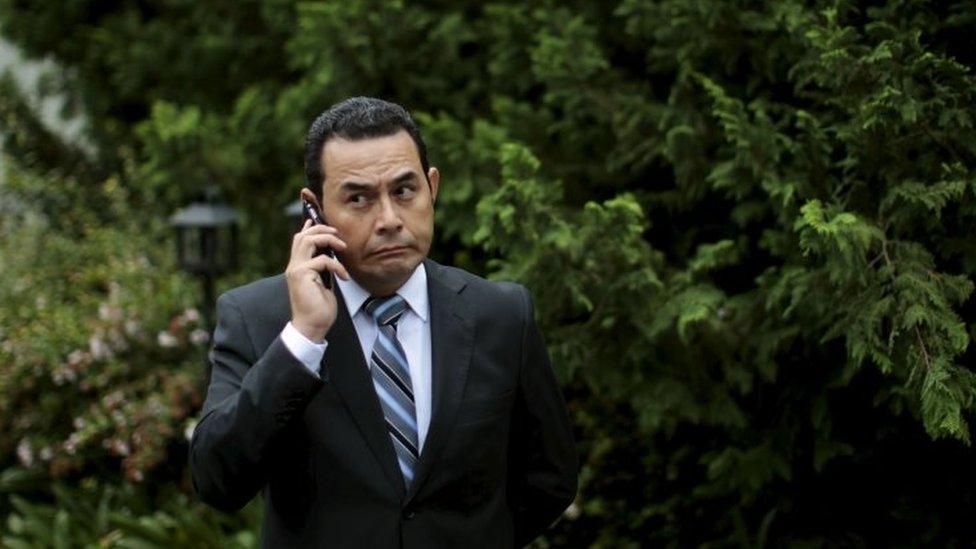
Jimmy Morales says he know who to call in a crisis
It seems he is fond of comparisons.
He cites another when I ask him how he will get laws passed with just 11 out of 158 representatives in Congress.
"As Ronald Reagan said: 'Of these three, you need two to govern: the Presidency, Congress and public opinion'."
"If I continue to have the support of the people by leading well and by implementing good political and economic measures, I think I will have public opinion on my side."
Some analysts, though, are less confident.
"I doubt that Jimmy Morales will have the political resources to face this situation," says Hugo Novales, a political analyst at the Investigation and Social Studies Association in Guatemala.
"We've seen his popularity, his ability to communicate with the people, to empathize with their problems," Mr Novales adds.
"It remains to be seen if he can harness his popularity into a political agenda."
- Published26 October 2015
